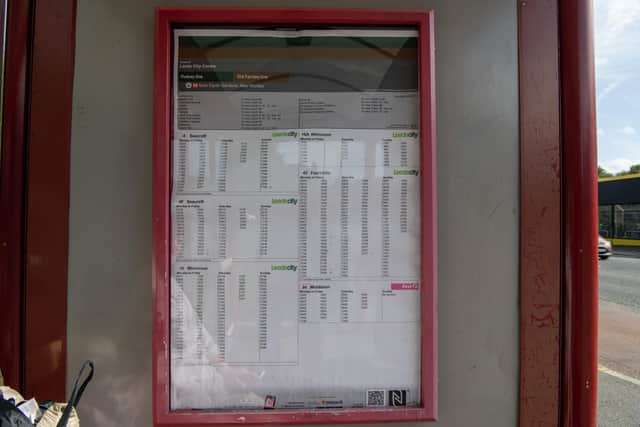Bus companies have failed to back up £2 fares with adequate service levels - Yorkshire Post Letters
In order to reduce the number of cars on the roads and reduce pollution levels, among other alternatives the local councils try to encourage travellers to leave the car and use the bus. The only way this is going to work is if the bus fares are low and the bus service frequency is high.
For quite some time there has been a reduced fare scheme in place with a maximum single fare of £2 and a Day Saver ticket at £4.50. Unfortunately the bus providers have not supported this by providing more frequent services but have instead reduced bus frequencies.
Advertisement
Hide AdAdvertisement
Hide AdPrior to Covid, my local First Bus service ran (in theory) every 10 minutes. During the pandemic, this was reduced to every 20 minutes. For the past year or so the service has run every 15 minutes.


Now First Bus has reduced the service so that the interval between buses is greater and, worst of all, not regular so passengers have not got a clue when they should leave home to catch it.
What is even worse is that the new paper timetable in the bus shelter does not tally with the online Metro timetable and the real-time display timetable is different again.
This has happened on many other routes operated by First Bus e.g. No.91. Potential passengers no longer have any idea what time they should arrive at their bus stop to catch the next bus.
Advertisement
Hide AdAdvertisement
Hide AdFor journeys that require the use of more than one bus, all is lost. The reduced services mean that it is virtually impossible to find connections that do not include standing around at a bus stop for 20 minutes or more.
People who had switched to buses now have little choice but to go back to using their cars.
The elderly and the disabled are the ones who will suffer the most as they are more dependent on public transport. They are likely to become house-bound especially in the winter months.
